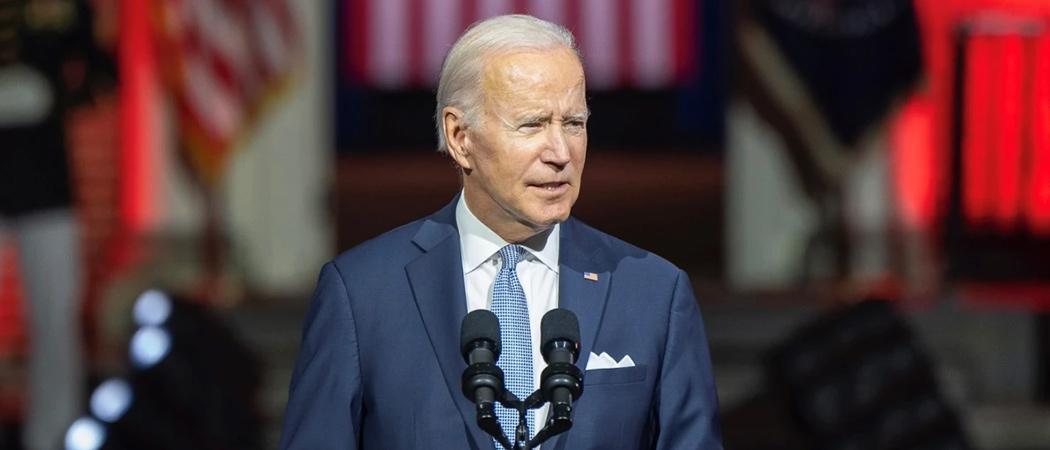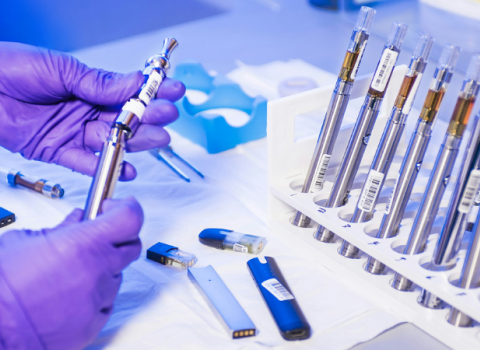As elections near, Biden promotes ‘whole-of-government’ effort to cut cancer death rates and strengthen the biopharma and biotech sectors. International partners welcome, up to a point

Joe Biden, President of the United States. Photo: whitehouse.gov
With US Congressional elections looming, President Joe Biden announced a series of politically popular health and biotech initiatives – relaunching a “cancer moonshot” to cut the cancer death rate by 50% in 25 years, and promising $2 billion for domestic US biopharma and biotech supply chains.
The goals, Biden said in describing the initiatives September 12, include a target “to end cancer as we know it and even cure cancers once and for all.”
The biotech initiative, he said, fits alongside the cancer plan, but is also aimed at making the US less dependent on other countries for drug manufacturing and biotechnology supply. In a bit of political stage-setting, Biden chose the Boston site of the Kennedy presidential library to make his announcement – and invoked that late president’s man-on-the-moon programme as his template.
And he named a Boston-based biotech executive, Renee Wegrzyn, to head the recently authorised Advanced Research Projects Agency for Health (ARPA-H), which has a $1 billion budget to spark game-changing innovations.
Global partners
International collaboration is part of the White House plan – though greatly subordinated to the domestic goals of boosting the US biotech and pharma industries.
An executive order issued by the White House instructs the State Department and other agencies to “enhance cooperation, including joint research projects and expert exchanges, on biotechnology R&D, especially in genomics.” It also aims to promote “open sharing of scientific data” with foreign partners, regulatory cooperation and “horizon scanning” for bio-security threats. When asked, the White House did not immediately provide further details, but the order says there should be “a specific focus on developing countries, international organisations and nongovernmental entities.”
The new US efforts fit into a long-running global effort to boost biopharma and biotech R&D, made more urgent by COVID-19 and climate change. The European Commission is managing a parallel, €500 million cancer ‘mission’ to cut death rates, as part of its Horizon Europe R&D programme, and has long pumped money into biotech and bioeconomy innovation. But despite talk of global cooperation, one US official briefing journalists said the initiatives’ goals include expanding “domestic biomanufacturing capacity so that more of what’s invented in America is made in America.” Likewise, for both cancer and biotech initiatives, the plans include regional US funding for R&D and manufacturing, and new training programmes for the US bio and health workforce.
The politics of cancer
And the domestic politics of it all were on display, as Democrats battle to keep their slim control over the US Senate and House of Representatives in November elections. One Democratic senator, Patty Murray of Washington state tweeted, “The [Republican party’s] cruel, dangerous laws are forcing doctors to delay treatment for cancer patients and making it harder for women to get the health care they need. The [Republican] agenda is putting everyone at risk.”
Biden himself took a more diplomatic, but still political tack, saying, “Cancer does not discriminate red and blue; it doesn’t care if you’re a Republican or a Democrat.”
And industry was quick to applaud. Pfizer CEO Albert Bourla tweeted, “Excited to see @POTUS inspiring action through the #CancerMoonshot Initiative.”
Certainly, the cancer issue resonates with many American voters. Despite big progress in treatment and detection over the past generation, cancer is still the second-biggest cause of death, after heart disease. More than 1.9 million Americans a year are diagnosed with cancer, and 609,000 die, according to the American Cancer Society.
Try again
And this is at least Biden’s third run at the topic – having inaugurated a “cancer moonshot” first in 2016 when he was vice president, then announcing a renewed effort this past February, and this week launching what he called the “supercharged moonshot.” His eldest son, Beau Biden, died of cancer in 2016, and he often refers to that in his speeches. “This Cancer Moonshot is one of the reasons why I ran for President,” Biden said in Boston September 12.
One difference from the past, however, is that this time there were tons of details pumped out about the funding, agency responsibilities, and specific actions. Part of the funding, for both the cancer and biotech initiatives, is new money to be allocated from the just-signed Chips & Science Act – Biden’s flagship research and innovation law – and part of it is relabeled from existing programmes. His executive orders name specific government officials responsible for what he called a “whole-of-government” response on cancer and biotech, and set deadlines for many government agencies to prepare additional proposals and budget estimates over the next few years.
Technologies getting extra attention include developing multi-cancer blood tests that detect cancers early on, when they can be more easily treated; assessing if the messenger RNA technology used COVID-19 vaccines can be applied to cancer vaccines; expanding a National Institutes of Health research-sharing database; and stepping up development of manufacturing technologies for cancer cell therapies.
The National Biotechnology and Biomanufacturing initiative promises more than $2 billion in funding “to lower prices, create good jobs, strengthen supply chains, improve health outcomes and reduce carbon emissions,” according to a White House fact sheet. It released a laundry list of specific steps, including $40 million to expand domestic production of active pharmaceutical ingredients, $100 million in Energy Department funding for R&D on converting biomass to fuels and chemicals and $60 million to scale up biomanufacturing facilities.





 A unique international forum for public research organisations and companies to connect their external engagement with strategic interests around their R&D system.
A unique international forum for public research organisations and companies to connect their external engagement with strategic interests around their R&D system.